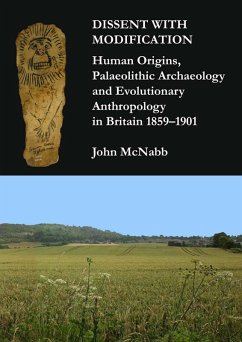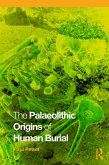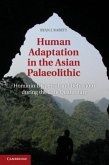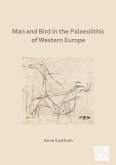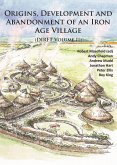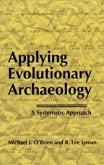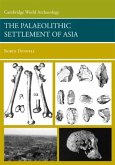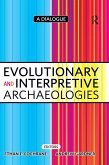The author's original aim in writing this book was to chronicle the story of a very specific debate in human evolutionary studies that took place between the late 1880s and the 1930s - the 'eolith' debate that had to do with small, natural stones whose shape and edges suggested to our earliest ancestors their use as tools, either as they were, or with a small amount of chipping to the stone's edge, a process called 'retouch'. These were the most primitive of tools, thought to date to the very beginning of human cultural evolution, and therefore suited to our very earliest ancestors. The more the author researched this topic the more he realised that its explanation was rooted in a number of research questions which today are considered separate subjects, and, gradually, a book that was to be about a forgotten Palaeolithic debate became a book that was just as much about 'Morlocks', stone tools, racial difference, and the Anthropological Society of London. The major themes of this study include: Apart from interconnectivity itself, the development of Palaeolithic archaeology, its relationship with the study of human physical anthropology in Britain and, to a much lesser extent, on the Continent; The links between these and the study of race and racial origins; The question of human origins itself; The link with geological developments in climate and glacial studies; The public perception of the whole 'origins' question and its relationship with 'race'; How the public got its information on origins-related questions, and in what form this was presented to them; a review of the opening phase of the eolith debate (1889-1895/6) as a logical extension of developments in a number of these areas (e.g. Victorian science fiction). This fascinating book incorporates original research with synthesis and overview, and at the same time presents original perspectives derived from the author's overall arrangement of the material. While the targeted readership includes postgraduates and third-year undergraduates, the work is very much intended as accessible to the non-academic reader wanting to know more about a subject that (re)touches on everyone.
Dieser Download kann aus rechtlichen Gründen nur mit Rechnungsadresse in A, B, BG, CY, CZ, D, DK, EW, E, FIN, F, GR, HR, H, IRL, I, LT, L, LR, M, NL, PL, P, R, S, SLO, SK ausgeliefert werden.
Hinweis: Dieser Artikel kann nur an eine deutsche Lieferadresse ausgeliefert werden.

